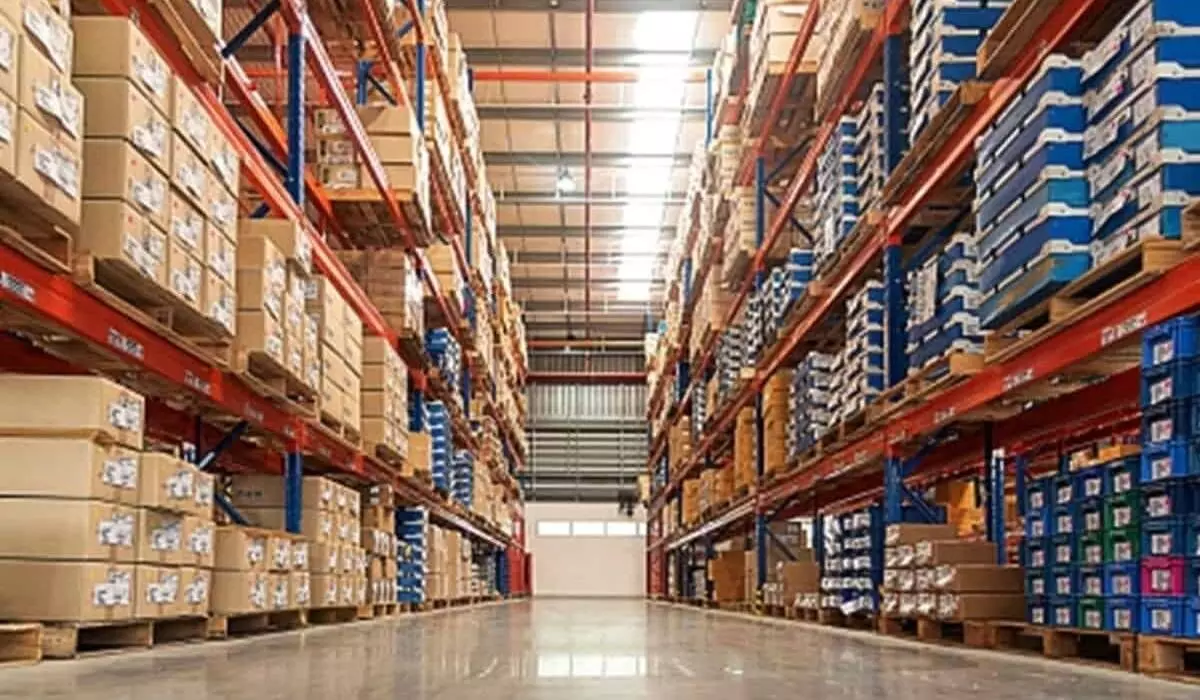Warehousing deals dip 7% to 5.1 mn sft in Hyd
Slowdown in transactions from third party logistics (3PL), e-commerce firms has taken a toll
image for illustrative purpose

Hyderabad Hyderabad, a pharmaceutical hub of the country, witnessed a marginal dip in warehousing transactions in the financial year 2022-23. Compared to 5.4 million sft in FY22, the warehouse transaction saw year-on-year drop of seven per cent to 5.1 mn sft in FY23, a report said.
International property consultant Knight Frank India in its latest report, ‘India Warehousing Market Report-2023’ has said that despite the slight y-o-y decline in transaction volumes, the total deals are still higher than any previous period, except FY22. The decline is mainly caused due to a temporary slowdown in transactions from 3PL and e-commerce occupiers. But this will not impact long-term demand prospects considering the popularity of online shopping and the need for last mile delivery.
The demand for warehousing continues to be dominant in the Medchal cluster, whose share has increased marginally from 60 per cent in FY22 to 61 per cent in FY23. The Shamshabad cluster and Patancheru cluster have observed almost the same trend in activity as compared with the previous year. The Shamshabad cluster witnessed a marginal decline in its share of transactions from 30 per cent in FY22 to 27 per cent in FY23. Notably, three of the top five transactions in the Hyderabad market occurred in the Shamshabad cluster during FY23. The Patancheru cluster experienced a marginal increase in its share of transactions from 10 per cent in FY22 to 11 per cent during FY23.
Shishir Baijal, Chairman and Managing Director, Knight Frank India, said: “Warehousing demand from the manufacturing sector is slated to increase considering many of the sectors that have been granted approvals under the PLI scheme will be based out of Hyderabad, and many global players in the mobile phone manufacturing and auto-ancillary space have signed MoUs with the Telangana government. The temporary dip in transactions from 3PL and e-commerce occupiers will not impact long-term demand prospects considering the popularity of online shopping and the need for last mile delivery is slated to continue.”

